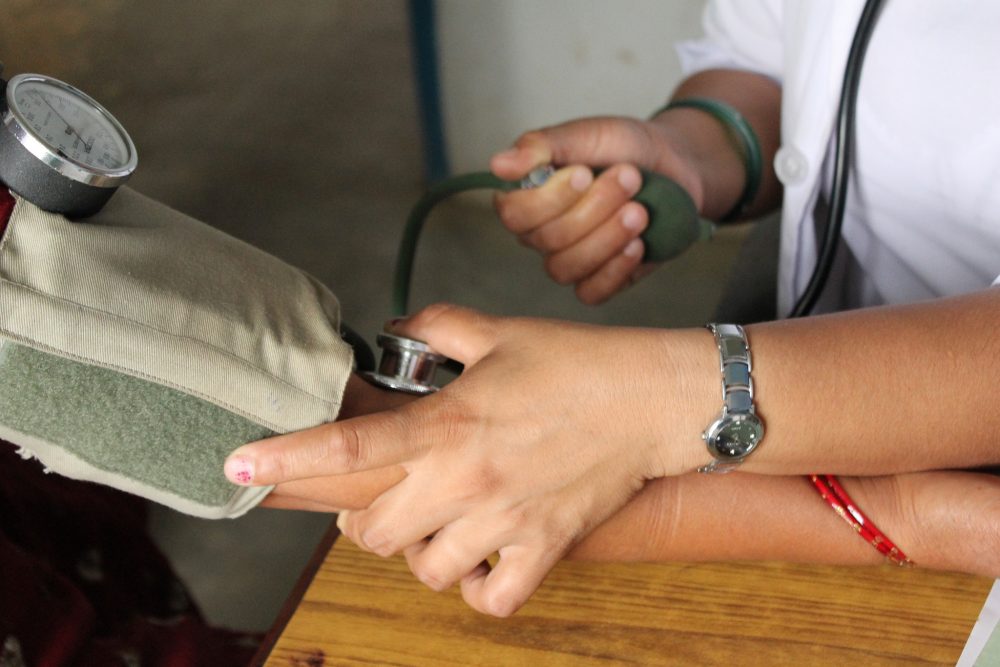Advertisement
Framingham Study: In Their 50s, But With The Healthy Arteries Of 20-Year-Olds

As we age, our blood vessels stiffen, leading to high blood pressure. But new findings from the long-running Framingham Heart Study suggest that nearly one-third of folks in their 50s have healthy, youthful arteries that give them a far better chance of avoiding heart disease.
The study in the journal Hypertension looked at more than 3,000 Framingham participants and found that stiffening of the arteries is not an inevitable result of aging — at least, not in our 50s or 60s. And maybe even 70s.
I spoke with lead author Teemu Niiranen of Boston University. Our conversation, lightly edited:
How would you sum up your study?
Hypertension is often thought of as being an inevitable trait if you live long enough, since as you age, your arteries become calcified and stiff, and you develop hypertension. Or at least, that’s what people have thought.
However, in some indigenous hunter-gatherer populations, hypertension is a far more uncommon phenomenon. These people do not lead a Western lifestyle, which too often consists of unhealthy eating and too little exercise.
So we decided to look at whether people who succeed in maintaining normal blood pressure and normal vascular stiffness up to old age exist in a Western society, and who these people might be. We defined 'healthy vascular aging' as basically having the arteries of a 20-year-old at an age over 50, so this means having no overt cardiovascular disease, no hypertension and normal measurements of arterial stiffness.
We found that nearly 30 percent meet these criteria in their 50s, but only one percent meets the criteria when they’re age 70 or over. So it is basically possible, but unfortunately very challenging, to maintain normal vascular function into old age.
What's the key?
When we looked at who these people were, we didn’t find any magic bullet or fountain of youth. These were just people who led an extremely healthy lifestyle.
We looked at how they did on the American Heart Association's Life's Simple 7 score, which includes normal fasting glucose, normal cholesterol, normal BMI, no smoking, healthy diet and adequate physical activity. If you met six of these Life's Simple 7 goals, you were 10 times more likely to experience healthy vascular aging than those who met zero or one goal. That’s a very striking observation.
So basically, if you maintained normal risk factors and a healthy lifestyle you were 10 times more likely to have the arteries of 20-year-old at a much older age.
Couldn't genetics play a role?
We also looked at the genetic risk scores for heart disease of these individuals, and they did not differ in any way from those who did not experience healthy vascular aging. So this healthy vs. unhealthy vascular aging still — fortunately or unfortunately — seems to be mainly driven by healthy lifestyles, even in the age of precision medicine. And the people with healthy vascular aging also had a 60 percent lower risk of experiencing heart attacks or strokes compared to those whose arteries stiffened or became hypertensive.
So how do we tell how well our arteries are aging?
It’s basically just two simple measures: blood pressure and arterial stiffness. Devices that let you measure your own arterial stiffness even at home are probably going to be available to the consumer in the near future and some already are.
But if only 1 percent of 70-year-olds still have young arteries, doesn't that mean the aging is indeed inevitable?
I agree that 1 percent is a pretty low number, but it’s not impossible. And as I said, among indigenous peoples, these percentages are a lot higher. Basically, maintaining healthy vascular function is lifetime project: You have to lead a healthy lifestyle from when you’re a baby to old age. So it’s difficult, but it’s achievable.
